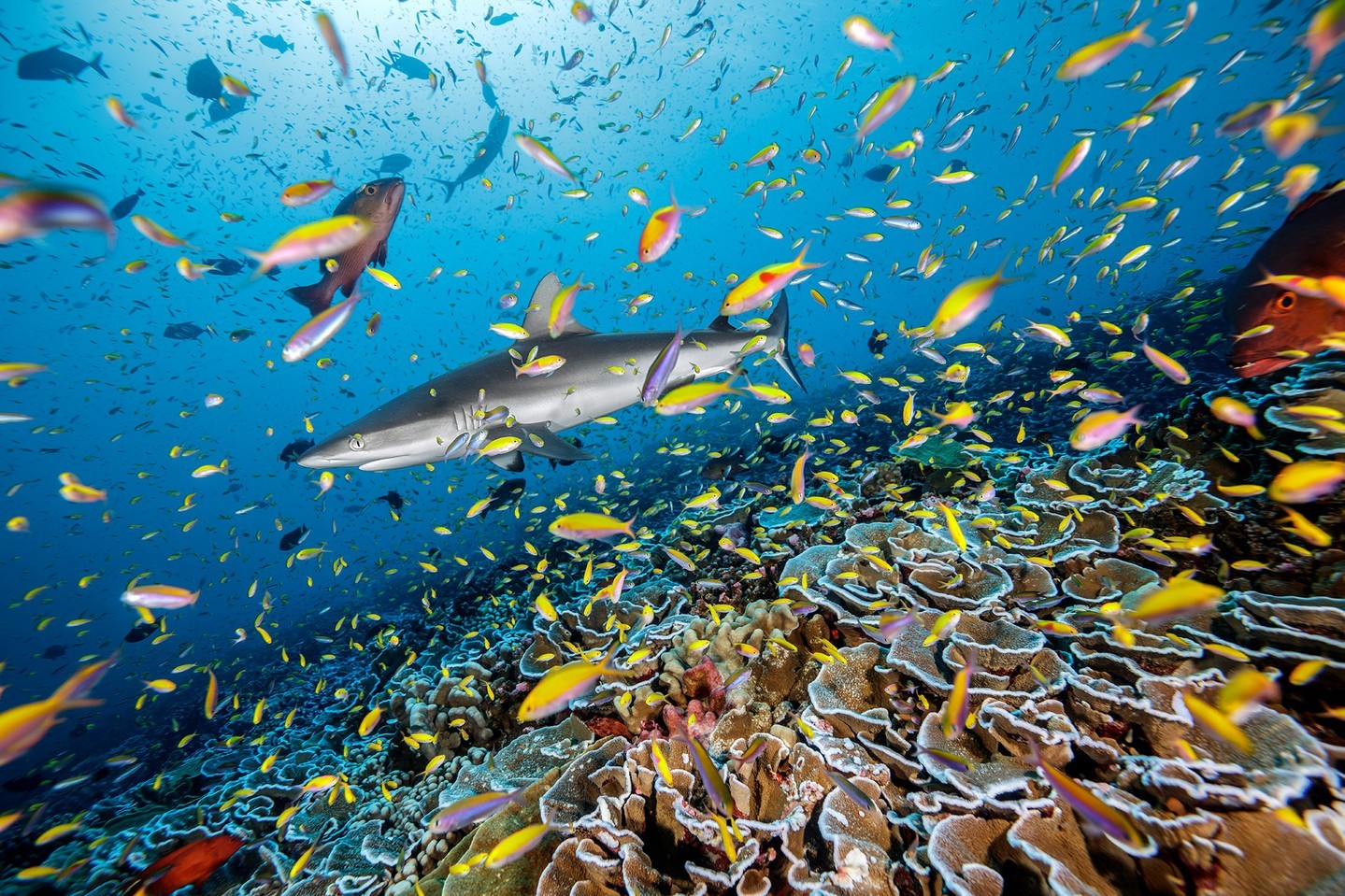- The ecological role of gray reef sharks in the marine ecosystem.
- The behavior and habitat of gray reef sharks, specifically around Vostok Island.
- The interaction between gray reef sharks and plankton-eating fish.
- Challenges faced by gray reef sharks due to environmental threats.
- Conservation efforts aimed at protecting gray reef sharks and their habitats.
Gray reef sharks play an integral role in the marine ecosystem, acting as both predator and sentinel in the aquatic food chain. Their presence signifies a healthy environment, showcasing the dynamic balance of marine life. These sharks influence the population and behavior of their prey, which includes a variety of fish species, keeping the ecosystem in check. This role makes them essential for maintaining the health of coral reefs, which are vital for biodiversity.
In the central Pacific Ocean, Vostok Island stands as an expanse of marine biodiversity. This is where the gray reef shark demonstrates its remarkable adaptations and behaviors. These sharks prefer the warm, clear waters of the coral atolls, thriving in depths ranging from the surface to around 300 feet. Their streamlined bodies and keen senses enable them to navigate these waters efficiently, making them highly effective hunters.
Gray reef sharks are often found near schools of plankton-eating fish, creating a dramatic visual spectacle in the ocean. These interactions are crucial; as plankton-eating fish feed and disperse nutrients, they attract predators like the gray reef shark. This relationship highlights the interconnectedness of marine species and the importance of each in sustaining the ecosystem’s balance. The presence of both predators and prey in such a dense, lively community often serves as an indicator of the health of the surrounding environment.
Globally, gray reef sharks face significant challenges, primarily due to human-induced threats. Overfishing, driven by demand for shark fins and other products, has led to a decline in their populations. Additionally, climate change impacts, such as rising ocean temperatures and acidification, threaten their habitats, disrupting food availability and breeding grounds. Pollution and habitat destruction further exacerbate these issues, posing serious threats to their survival.
Conservation efforts are underway to protect gray reef sharks and their habitats. These include establishing marine protected areas, regulating fishing practices, and promoting sustainable tourism. Advocacy for stronger international regulations on shark finning is also crucial. Efforts are focused on educating the public about the vital role sharks play in marine ecosystems and the need for their protection. Monitoring and research programs help track shark populations and migration patterns, providing data essential for informed conservation strategies.
In summary, gray reef sharks are pivotal in maintaining the health and balance of marine ecosystems. Their interactions with plankton-eating fish near locations like Vostok Island demonstrate the intricate connections in the oceanic environment. Despite facing numerous challenges, ongoing conservation measures offer hope for ensuring the survival of gray reef sharks and preserving the ecosystems they inhabit.
*****
Source Description
Photo by @enricsala | A gray reef shark emerges from an explosion of plankton-eating fish at Vostok Island, one of the southern Line Islands of Kiribati in the central Pacific Ocean.


